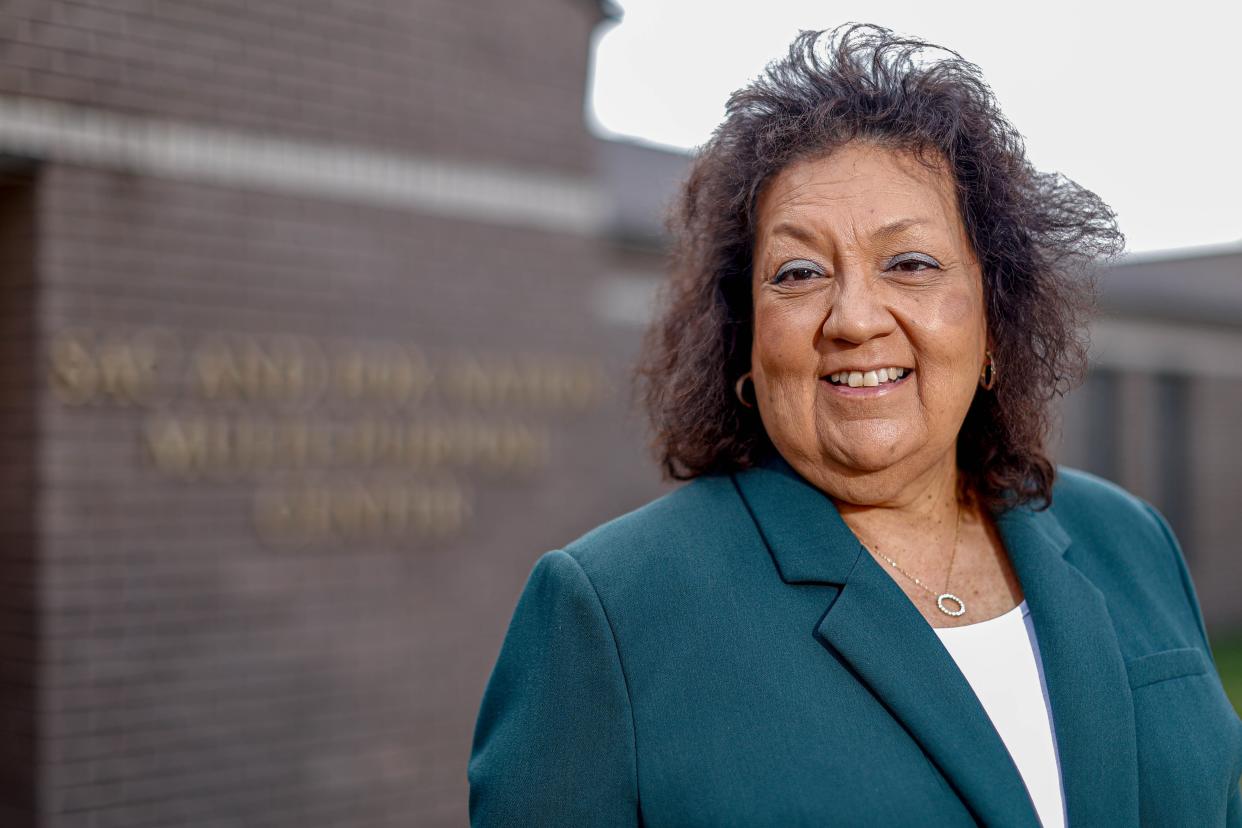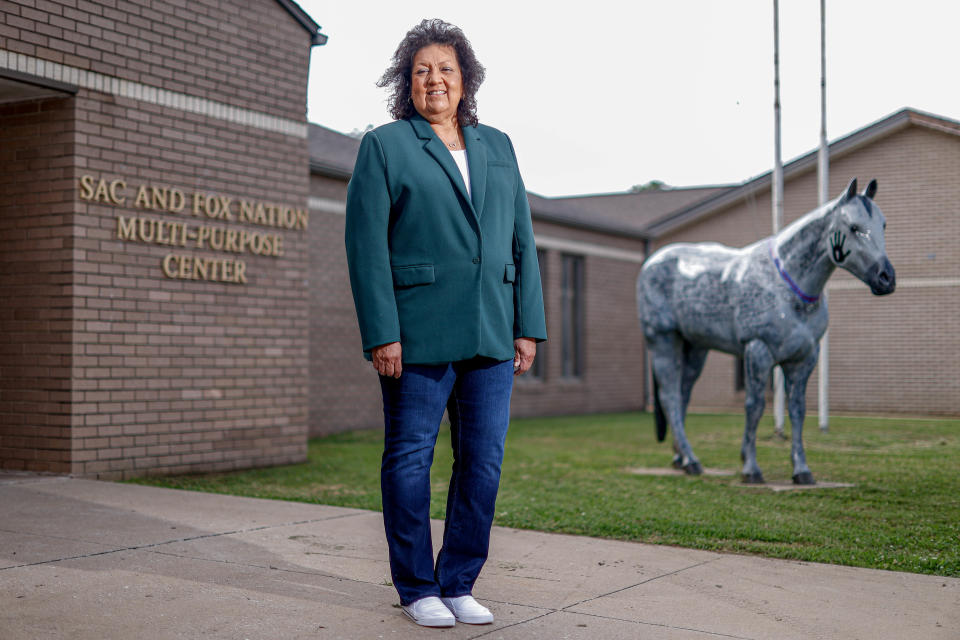Oklahoma students need a better understanding of the tribes of their state. This educator is leading the effort

Edwina Butler-Wolfe has had a busy start to summer, going from end-of-school assemblies in one town to graduation ceremonies in another.
Butler-Wolfe, 62, works with Native students, their families and public schools across Oklahoma as director of the Sac and Fox Nation education department in Stroud. She spent 15 years working in public schools before moving into tribal government in 2006.
In 2013, she was elected governor of the Absentee Shawnee Tribe in Shawnee. She served in that role until 2019, becoming the first woman to serve a full term as her tribe’s top elected official.
Butler-Wolfe is currently one of four candidates running for mayor of Shawnee, where she grew up and resides today. In a recent interview with The Oklahoman, she said she hopes to create a path for the next generation of female leaders.
Here are a few of her thoughts about leadership, schools and tribal nations:
Q: What inspired you to take on leadership roles in your tribe and community?
A: What really inspired me is to become a voice for people that normally would not have the opportunity to talk or be too timid to talk. I had seven sisters and a very large family. I’m the eighth girl, so that probably took a lot of heart right there — I better talk up.
Q: What was the biggest challenge you faced during your time as governor?
A: The challenge was getting the trust of the people as a female, because in a lot of our traditions, men are the front runners. It was a challenge just getting elected. I think at that time, people wanted change in our government.
After I was elected, it was a challenge implementing new policies. I needed two or three of me when I first got in there. There was always something in front of you to work on.
And of course, you’ve got four other elected officials that you need to work with (on the executive committee). If you don’t have them on your page, then you’ve got some problems. That was a big challenge.

Q: We’ve seen a rise in misinformation about tribal nations in Oklahoma. Gov. Kevin Stitt has voiced his skepticism of tribal gaming and his disdain for the McGirt decision. What do you think is important for the governor and others to understand about tribes?
A: He’s in the middle of a state that has 38 federally recognized tribes, and he needs to go back and read the history of what is in place and why. He needs to be communicating with the tribes instead of battling against them.
Communication is the big key word of any government office. Communication and transparency are two main things that you’ve got to establish.
Q: For state officials who want to work with tribal nations, what are the first steps they can take?
A: The first step is to look at all the 38 federally recognized tribes in Oklahoma. The Absentee Shawnee Tribe has about 4,000-plus tribal members. It seems like everybody runs to the five big tribes. But the smaller tribes, we have our voice, too.
More: Oklahoma task force on tribal reservation safety lacked tribal input. Here's how it went
They need to look at the whole picture of the tribal nations: What’s going on with the not-so-big tribes? That’s the first step.
Q: What can schools do to better serve Native students?
A: Schools can have more in-service training for teachers and support staff to understand Native American culture and history. There’s one school that I found out through consultation that still practices the Land Run. That needs to go out the door. Schools need to better educate their staff and teachers.
Some teachers who are not educated may think certain remarks are funny, but it’s not OK to say those things. It really hurts our Native American students — the mocking “woo-woo-woo” stuff, and “Oh, you’re a Redskin.” That’s very degrading.
I wish schools that have mascots like Redskins and Savages would consider changing those names to something else. I would like to work on a future bill that will eliminate those mascots, kind of like what California did. I’m hoping to get that to the front lines in the next legislative session.

Q: Talking about the Legislature, last year lawmakers passed protections for students to wear tribal regalia at graduation ceremonies. How important have those protections been?
A: Very important. I’m just so glad that passed last year. But there are still some schools that require students to fill out a document of what they’re going to wear. And I said, well, they already have that document: Senate Bill 429.
I’ve been to several graduations, and it makes me proud to see our Native American children that are able to bead their caps, to wear their feathers, to wear stoles and cords of their tribal nations or tribe. It’s really a good feeling to see that without us having to fight and go to a school board.
I always say with Native American children, this could be their first child graduating in their family. They want to make it special, so this is probably the best thing that’s ever happened.
This article originally appeared on Oklahoman: Oklahoma tribal leader, educator wants to improve understanding

